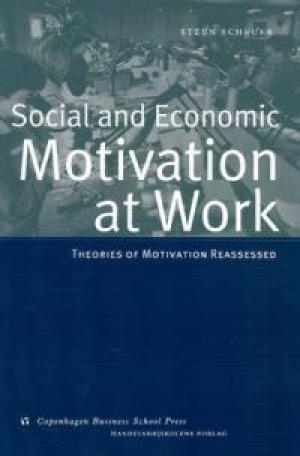This book breaks new ground in two ways. It gives a fresh analysis of the dynamics of motivation. And it challenges earlier interpretations of the empirical classics of motivation.
Rational choice motivations interact with social norms of the workplace in the shape of peer pressure, restriction of output etc. The interrelation between these two driving forces is not stable and cannot be defined once and for all.
While in literature, the two types of motives are mostly seen as being divergent, the author here shows that they may be and are in fact often convergent.
The reappraisal of three classics of industrial sociology makes it evident that too many scholars have copied what their colleagues have misunderstood. Dr. Scheuer points out myths and interpretations that actually cannot be based on the classics' findings.
The author has several audiences in mind: researchers, teachers and students in the fields of sociology and management.
His book will also create a new interest in these issues in many companies.



